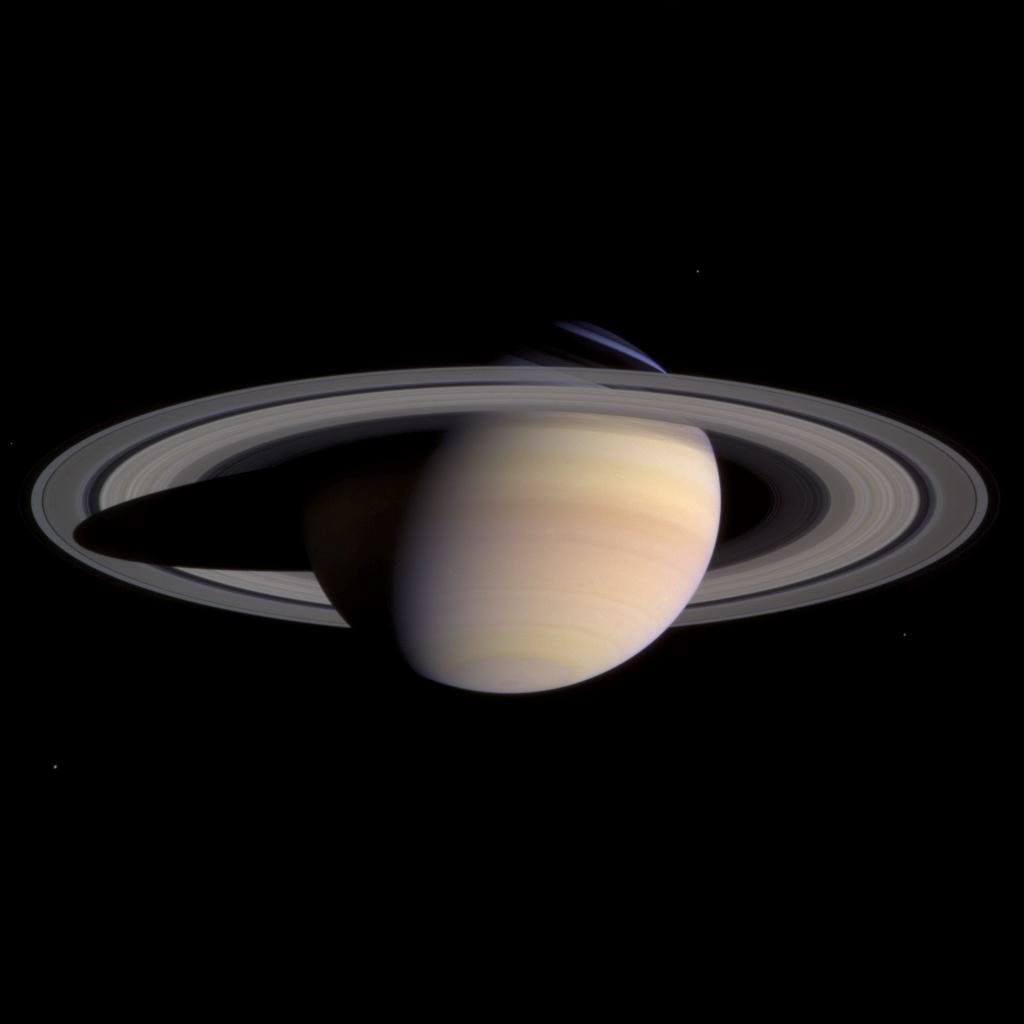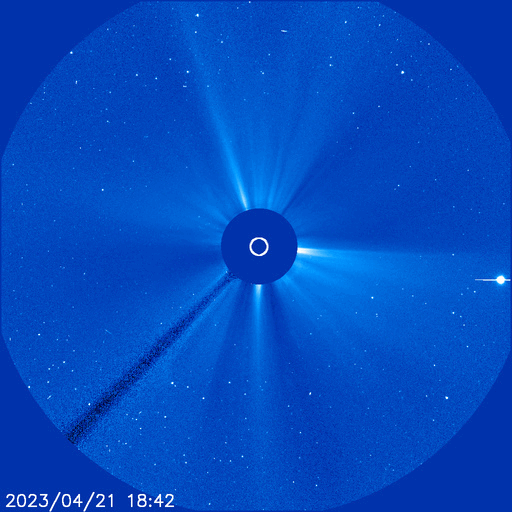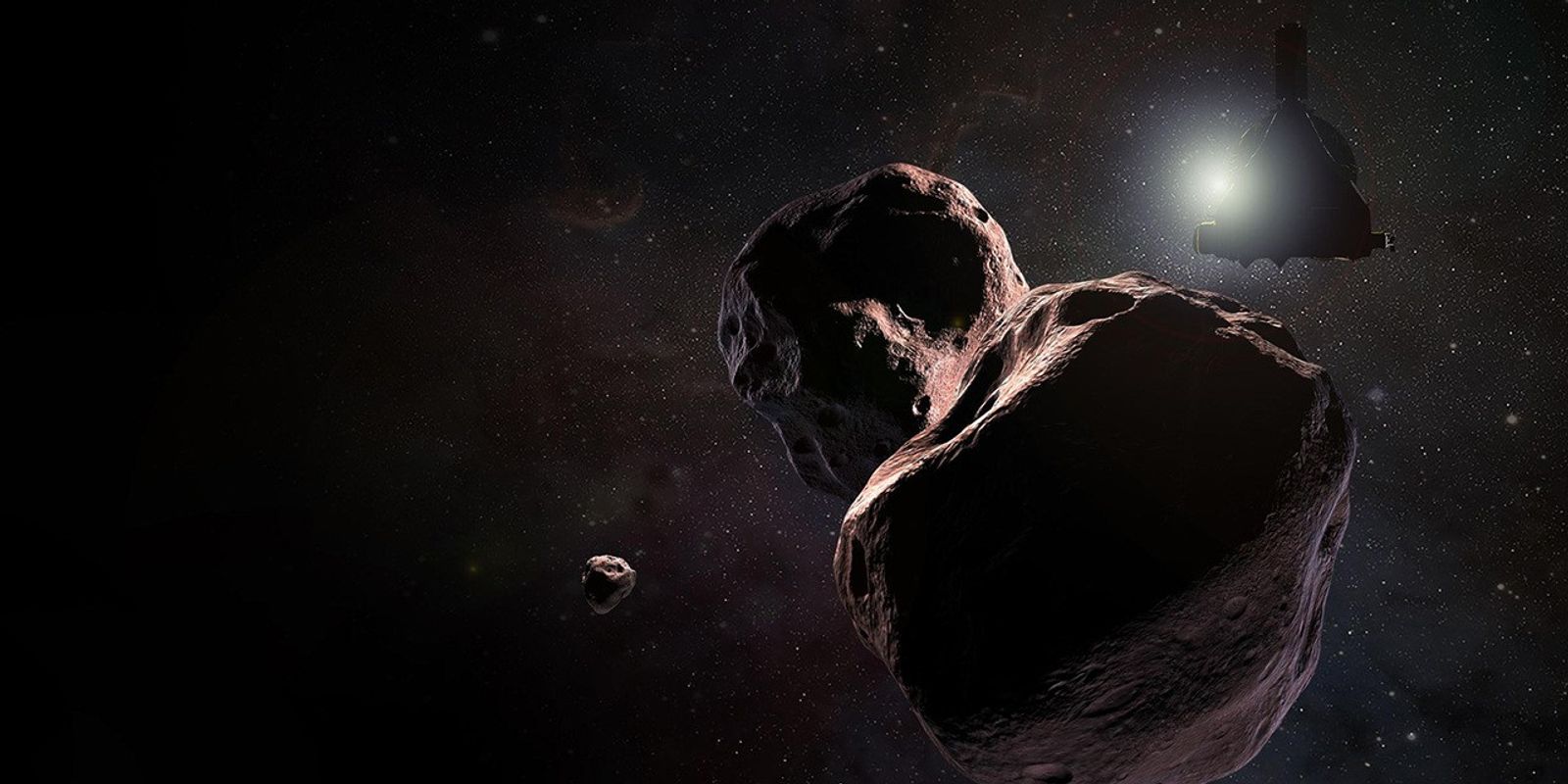Cassini Significant Event Report
For Week Ending 04/19/02
The most recent spacecraft telemetry was acquired from the Goldstone tracking station on Wednesday, April 17. The Cassini spacecraft is in an excellent state of health and is operating normally. Information on the spacecraft's position and speed can be viewed on the "Present Position" web page.
The primary activity on board the spacecraft this week was Probe Checkout (PCO) #9. The checkout was
completed successfully. However, during the checkout, Goldstone Deep Space Station (DSS) 25 was
required to end track and stow its antenna early due to high winds. The resulting telemetry outage caused the
loss of PCO #9 real-time data and was expected to continue though the time allotted for PCO recorded data
playback. At the request of Huygens Probe Operations Center personnel, with Cassini Program Manager
concurrence, and with prior notification given to affected instruments, the Spacecraft Office built a real-time
command to inhibit writing of Magnetospheric and Plasma Science (MAPS) data on the Solid State
Recorder. This preserved the PCO data for playback at the next scheduled track. About 20 hours of
MAPS data was lost. The pass over DSS 45 was then used to playback the PCO data and resume normal
C31 activities.
Additional instrument and spacecraft activities included the uplink of real-time commands to modify the Radio
and Plasma Wave Science Instrument Expanded Block to fine tune resolution of data collected, clearing of the
ACS high water marks, an autonomous CDS Solid State Recorder memory load partition repair, a
demonstration over DSS 45 of the new Version 26.4 Command System, and uplink of a Privileged Action
Program to disable/enable the Solid State Power Switch trip Fault Protection in support of the Probe
checkout.
Science Planning reported that all Target Working Teams made the delivery for the Science Operations Plan
integration activity for orbits 15 through 20.
The Instrument Operations Science Data Archive Engineer is conducting a Planetary Data Archive Workshop
in conjunction with the Huygens Science Working Team meeting being held this week in Paris, France.
After last week's delivery coordination meeting for Cosmic Dust Analyzer flight software, it was identified that
V9 may generate invalid packet IDs. Workarounds were discussed and a final decision regarding uplink will
be determined by next week.
Mission Support and Services Office (MSSO) personnel met with Radio Science and the DSN Network
Operations Project Engineer to discuss uplink transfers for the next Superior Conjunction Experiment. During
the Gravitational Wave Experiment last December, about a dozen uplink transfers failed, each causing more
than 2 hours outage in prime mission science data. The most likely cause identified was the setting DSS
waiting too long to initiate tune-out. It was resolved that a briefing message will be sent to the DSN specifying
begin tune-out time based on Spacecraft Office telecom analysis.
All teams and offices supported the Cassini Monthly Management Review.
The Program Manager gave a presentation to the JPL Executive Council on the issue of providing real-time
communications during the SOI burn by doing the burn at Earth-line attitude. It is feasible to provide telemetry
during all of the burn except for a period where the spacecraft is occulted by the rings, but at a cost in science
return and propellant usage. Further studies were requested.
MSSO personnel gave a talk and museum tour to attendees of a NASA Administrative Issues Conference
held at the Jet Propulsion Laboratory.
Additional information about Cassini-Huygens is online at http://saturn.jpl.nasa.gov.
Cassini will begin orbiting Saturn on July 1, 2004, and release its piggybacked Huygens probe about six months later for descent through the thick atmosphere of the moon Titan. Cassini-Huygens is a cooperative mission of NASA, the European Space Agency and the Italian Space Agency. JPL, a division of the California Institute of Technology in Pasadena, manages the mission for NASA's Office of Space Science, Washington, D.C.
Media Relations Office
Jet Propulsion Laboratory
California Institute of
Technology
National Aeronautics and Space
Administration
Pasadena, Calif. 91109.
Telephone (818) 354-5011






























